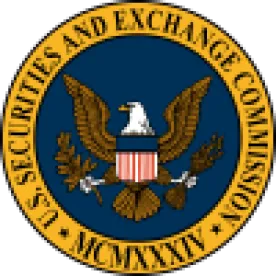On March 20, 2019, the U.S. Securities and Exchange Commission (SEC) announced it had adopted a series of amendments to improve the readability and navigability of company disclosures, and to discourage the disclosure of immaterial or repetitive information. The amendments reflect the SEC’s ongoing efforts to modernize and streamline public company disclosure, as required by Section 72003 of the Fixing America’s Surface Transportation Act and reflected in the SEC’s concept release regarding Business and Financial Disclosure Required by Regulation S-K.
While many of the amendments address technical issues in the disclosure process, they are likely to reduce the reporting costs of registrants by clarifying the requirements and eliminating certain redundant disclosures.
In particular, registrants should be aware of the following changes to various disclosure requirements, each of which, unless otherwise noted, becomes effective 30 days after its publication in the Federal Register:
Management Discussion and Analysis (MD&A)
The amendments revise Item 303 of Regulation S-K and Form 20-F to enable registrants to exclude a discussion of the earliest of three years in the MD&A if they have already included such discussion in any other prior filing requiring Item 303 disclosures. Registrants electing not to include a discussion of the earliest of three years must, however, identify the location in the prior filing where the omitted discussion may be found.
The amendments also eliminate the requirement in Instruction 1 of Item 303 to use year-to-year comparisons in the MD&A. Registrants will be able to use any presentation that enhances a reader’s understanding of the registrant’s financial condition, changes in financial condition, and results of operations. The SEC hopes this flexibility will permit registrants to focus disclosure on material information and improve readability.
Physical Properties
Under the amendments, Item 102 of Regulation S-K has been revised so that registrants are required to provide disclosure about a physical property only to the extent that it is material to the registrant. Because determinations of materiality are fact-specific, the amendment does not mandate a particular form of description; registrants may describe properties on an individual or collective basis, as the circumstances merit. In adopting this amendment, the SEC wanted disclosures focused on properties material to an investor and observed that registrants are less likely today to maintain large physical properties, such as manufacturing plants, or, if they do, the physical properties are unlikely to be significant to an investor’s evaluation of an investment.
Confidential Information
Under the amendments to Item 601(b)(2) and (10) of Regulation S-K, registrants will be able to omit confidential information from material contracts filed as exhibits without the need to submit a confidential treatment request (CTR) in advance, so long as the underlying information (i) is not material and (ii) would likely cause competitive harm if publicly disclosed.
In order to rely on this new provision, registrants must still:
- mark the exhibit index to indicate that portions of the exhibit have been omitted;
- include a prominent statement on the first page of the redacted exhibit that certain identified information has been excluded because it is “both not material and would likely cause competitive harm if publicly disclosed”; and
- indicate with brackets where the information has been omitted from the filed version of the exhibit.
This amendment offers relief to registrants from investing significant time and money in preparing and processing CTRs. Due to its procedural nature, this particular amendment is effective upon publication in the Federal Register.
Exhibits and Material Contracts
The amendments make several substantive and technical changes to disclosure exhibits and the content required within those exhibits.
First, under the revised Item 601(b)(10) of Regulation S-K, while all registrants will still be required to file as an exhibit every material contract to be performed in whole or in part at or after the filing of a registration statement or report, only newly reporting registrants are required to file material contracts that were entered into within two years of a registration statement or report. “Newly reporting registrants” include registrants that are not subject to the reporting requirements of Section 13(a) or Section 15(d) of the Exchange Act at the time of filing and registrants that have not filed an annual report since the revival of a previously suspended reporting obligation. The SEC reasoned that investors would already have access to any material agreements of registrants with established reporting histories.
Second, the amendments add Item 601(a)(5), which provides that registrants will no longer need to file schedules and similar attachments to material contracts if the schedule or attachment (i) doesn’t contain material information or (ii) isn’t otherwise disclosed in the exhibit or the disclosure document. This expands the current provision that permits registrants to not include schedules or similar attachments for material plans of acquisition, reorganization, arrangement, liquidation or succession for all exhibits filed pursuant to Item 601. In order to rely on this amendment, registrants must include in the exhibit a list briefly identifying the contents of any omitted schedules and attachments, unless the exhibit already contains a list serving that purpose.
Third, under the revised “incorporation by reference” rules of Regulation S-K, registrants will no longer need to file as an exhibit any document or part thereof that is incorporated by reference in a filing. They must instead provide hyperlinks to any information that is incorporated by reference to a document available on EDGAR. Additionally, registrants are not required to file an amendment to a document solely to correct an inaccurate hyperlink, unless that hyperlink was included in a pre-effective registration statement. Moreover, registrants are not required to correct inaccurate hyperlinks to information incorporated by reference in a filed document unless that hyperlink was included in pre-effective registration statement as the SEC reasoned requiring registrants to re-file disclosure to correct a hyperlink would create more confusion than clarity.
Compliance with Section 16(a) of the Exchange Act
The amendments to Item 405 of Regulation S-K modified the Section 16 disclosure regime for officers, directors and certain security holders.
As a preliminary matter, reporting persons will no longer be required to furnish copies of Section 16 reports to the registrant. This amendment shifts the focus of registrants’ inquiry to Section 16 reports filed with EDGAR, allowing them to perform their diligence for Item 405 disclosures more efficiently and with a greater degree of confidence in the results.
The amendments provide more technical changes. The checkbox on the cover page of Form 10-K, whereby a registrant would indicate whether there is disclosure of delinquent filers in the Form 10-K, will be removed. The SEC believes the disclosure has “outlived its usefulness” as a tool to facilitate the staff’s processing and review of the form. In addition, the corresponding proxy statement heading will be changed from “Section 16(a) Beneficial Ownership Reporting Compliance” to “Delinquent Section 16(a) Reports.” Additionally, the new heading should be excluded altogether when there are no delinquencies to report.
Additional Cover Page Information
The amendments also expand the required data on cover pages and make that data more interactive. Registrants will now be required to disclose the national exchange or principal U.S. market for their securities, the corresponding trading symbol of those securities, and the title of each class of securities on the cover page of Forms 8-K, 10-Q, 10-K, 20-F and 40-F. The principal market disclosure is limited to only those markets where the registrant, through the engagement of a registered broker-dealer, has actively sought and achieved a listing, which is an acknowledgment by the SEC that registrants cannot always control whether their securities are quoted on an over-the-counter market.
Registrants will also be required to tag all cover page information of Forms 10-K, 10-Q, 8-K, 20-F and 40-F in Inline eXtensible Business Reporting Language. This amendment has a three-year phase-in period, with large accelerated filers subject to such rules starting with the first fiscal report (including a Form 10-Q) ending on or after June 15, 2019. The SEC found that the benefit to investors in collecting and analyzing data resulting from tagging cover page data justified the increased cost of compliance.
Risk Factors
Under the amendments, the risk factor requirements contained in Item 503(c) will migrate to Item 105 to reflect the application of risk factor disclosure requirements to registration statements on Form 10 and periodic reports, and the generic list of example risk factors (e.g., a company’s “lack of operating history”) will be eliminated. This amendment underscores the need for registrants to provide risk disclosures that are more precisely calibrated to registrants’ particular circumstances.





 />i
/>i

